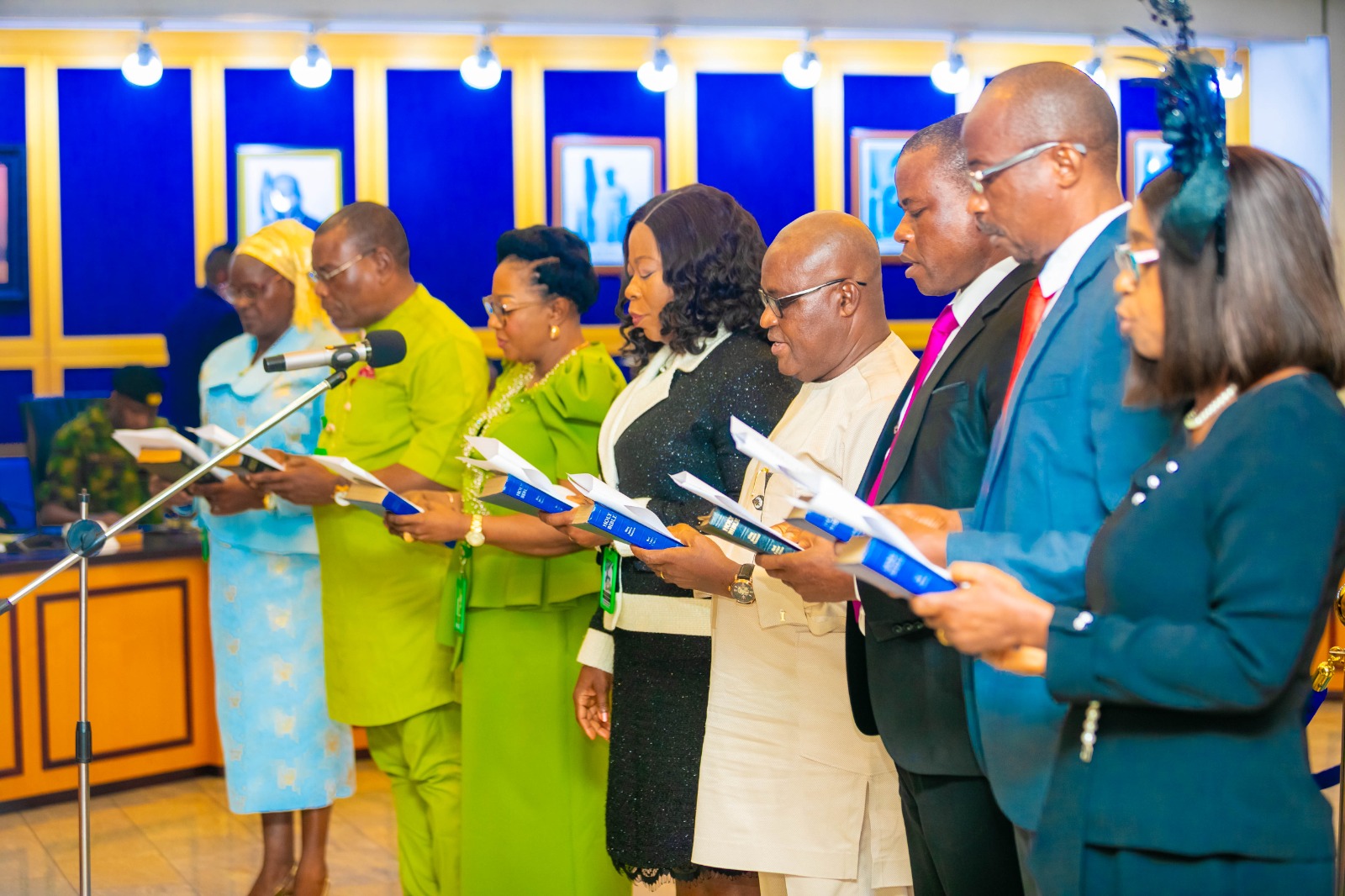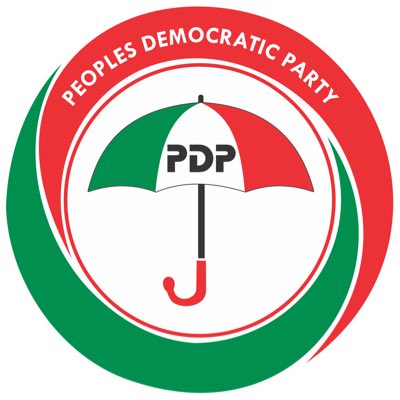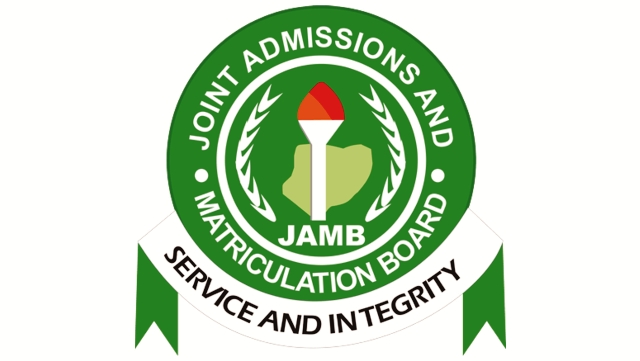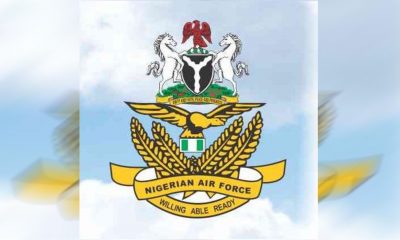News
SERAP Sues NNPCL Over Unaccounted N500bn Oil Funds

The Socio-Economic Rights and Accountability Project (SERAP) has filed a lawsuit against the Nigerian National Petroleum Company Limited (NNPCL) over the failure to account for and explain the whereabouts of N500bn.
The organisation claimed that the NNPCL failed to remit the amount to the Federation Account between October 2024 and December 2024.
In a statement signed by SERAP Deputy Director, Kolawole Oluwadare, yesterday, the suit followed the recent allegations by the World Bank that out of the N1.1 trillion revenue from crude sales and other income in 2024, the NNPCL only remitted N600bn, leaving a deficit of N500bn unaccounted for.
“In response to SERAP’s Freedom of Information (FoI) request, the NNPCL had claimed through its lawyers, Afe Babalola and Co that the FoI Act does not apply to it.
But in the suit number FHC/L/MSC/553/2025 filed last Friday at the Federal High Court in Lagos, SERAP is seeking: “an order of mandamus to direct and compel the NNPCL to account for the alleged missing N500 billion, which it allegedly failed to remit to the Federation Account between October 2024 and December 2024.”
SERAP said it is also seeking the court to “direct and compel the NNPCL to invite appropriate anti-corruption agencies to investigate the spending and whereabouts of the said N500 billion and to ensure the prompt recovery and remittance of the money to the Federation Account.”
SERAP also asked the court to “direct and compel the NNPCL to identify those suspected to be responsible for the alleged missing oil funds, surcharge them for the full amount involved, and hand them over to appropriate anti-corruption agencies for investigation and prosecution.”
In the suit, SERAP argued that: “The NNPCL has a responsibility to comply with the Nigerian Constitution 1999 [as amended], the Freedom of Information Act, and the country’s international human rights and anticorruption obligations in the exercise of its statutory functions.
It noted that, “The missing oil revenues have further damaged the already precarious economy in the country and contributed to high levels of deficit spending by the government and the country’s crippling debt crisis.”
According to SERAP, the missing oil revenue reflects a failure of NNPCL’s accountability more generally and is directly linked to the institution’s continuing failure to uphold the principles of transparency and accountability.
It also argued that, “the Supreme Court in a groundbreaking judgment recently declared that the Freedom of Information Act is applicable and applies to the public records in the Federation, including those kept by the NNPCL.”
The suit filed on behalf of SERAP by its lawyers, Kolawole Oluwadare, Ms Oluwakemi Oni, and Ms Valentina Adegoke, read in part: “Nigerians continue to bear the brunt of these missing public funds from the NNPCL meant for the economic development of the country.
“There is a legitimate public interest in providing the details sought. The NNPC has a legal responsibility to account for and explain the whereabouts of the missing oil money.”
SERAP pointed out that the country’s oil wealth ought to be used solely for the benefit of the Nigerian people, and the sake of the present and future generations, saying that without the full recovery and remittance of the missing N500 billion oil revenues, the dire economic situation may worsen and Nigerians will continue to be denied access to basic public goods and services.
“Nigerians have the right to know why the NNPCL failed to remit the subsidy removal savings to the Federation Account, and why the NNPCL is deliberately denying states and local governments their allocations from the Account, contrary to the provisions of the Nigerian Constitution.
“The failure by the NNPCL to remit the money to the Federation Account is a grave violation of the public trust and the provisions of the Nigerian Constitution, national anticorruption laws, and the country’s anticorruption obligations.
“Despite the country’s enormous oil wealth, ordinary Nigerians have derived very little benefit from oil money primarily because of widespread grand corruption, and the entrenched culture of impunity of perpetrators.
“Combating the corruption epidemic in the oil sector would alleviate poverty, improve access of Nigerians to basic public goods and services, and enhance the ability of the government to meet its human rights and anti-corruption obligations,” the organisation said.
The statement noted that the Nigerian Constitution, Freedom of Information Act, and the country’s anti-corruption and human rights obligations rest on the principle that citizens should have access to information regarding the spending of their commonwealth.
It said, “The Auditor-General of the Federation and Nigeria Extractive Industries Transparency Initiative have for many years documented reports of the disappearance of oil money from the NNPCL.
“The World Bank recently disclosed that out of the N1.1tn revenue from crude sales and other income in 2024, the NNPC only remitted N600bn, leaving a deficit of N500bn unaccounted for.
“The revenue and other income were expected to be paid into the Federation Account and shared by all levels of government, but the NNPCL reportedly failed to do so.”
SERAP noted that “Section 15(5) of the Nigerian Constitution requires public institutions to abolish all corrupt practices and abuse of power. Section 13 of the Nigerian Constitution imposes clear responsibility on the NNPCL to conform to, observe, and apply the provisions of Chapter 2 of the Constitution.”
The organisation added that Nigeria has made legally binding commitments under the UN Convention against corruption to ensure accountability in the management of public resources, stressing that articles 5 and 9 of the UN Convention against corruption also impose legal obligations on the NNPCL to ensure proper management of public affairs and public funds.
The statement concluded: “These commitments ought to be fully upheld and respected.
“The missing oil revenue has also impeded Nigerians’ ability to enjoy their economic and social rights, and denied them access to essential public goods and services, especially at the time of the cost of living crisis in the country.
“Had the NNPCL accounted for and remitted the alleged missing N500 billion to the Federation Account, it is likely that more funds would have been allocated to the fulfillment of economic and social rights, such as increased spending on public goods and services.
“The Freedom of Information Act, Section 39 of the Nigerian Constitution, article 9 of the African Charter on Human and Peoples’ Rights, and article 19 of the International Covenant on Civil and Political Rights guarantee to everyone the right to information on the whereabouts of the missing N500 billion of oil revenue.”
No date has been fixed for the hearing of the suit.
News
Ibas Inaugurates RSIEC, Service Commissions, Healthcare Board In Rivers …Charges Appointees To Embrace Principles Of Service

The Administrator of Rivers State, Vice Admiral (Rtd) Ibok-Ete Ibas, has charged newly appointed Board members to uphold the highest standards of discipline, competence, integrity, and unwavering dedication in their service to the State.
He emphasized that such commitment is critical to stabilizing governance, restoring democratic institutions, and advancing the principles of good governance in the State.
This was contained in a statement by the Administrator’s Senior Special Adviser on Media, Hector Igbikiowubo on Monday.
Ibas issued the charge on Monday while inaugurating the reconstituted Rivers State Independent Electoral Commission (RSIEC), Rivers State Civil Service Commission, Rivers State Local Government Service Commission, and the Rivers State Primary Health Care Management Board at Government House, Port Harcourt.
The Administrator urged the new appointees to embrace their roles with diligence, patriotism, and a commitment to transforming Rivers State through excellent service.
Addressing the Chairman and members of RSIEC, Ibas underscored their pivotal role in ensuring credible local government elections that reflect the will of the people.
“Your task is clear but demanding: to conduct free, fair, transparent, and credible elections at the grassroots level. You must resist bias, favoritism, and external interference while restoring public confidence in the electoral process,” he stated.
“The independence of your actions is crucial to sustaining peace, stability, and grassroots governance. I urge you to act with fairness, impartiality, and professionalism—even in the face of difficult choices,” Ibas added.
The Sole Administrator also charged the Rivers State Civil Service Commission on the need to eliminate mediocrity and foster a culture of excellence through merit-based recruitment, training, and promotions.
“The civil service must transition from favoritism to competence, integrity, and accountability. Your commission will lead reforms, including digital transformation and standardized practices across ministries, departments, and agencies,” he said.
He disclosed that extensive training programmes are underway, with a committee set up to overhaul the public service framework for greater efficiency.
Meanwhile, Ibas urged the Rivers State Local Government Service Commission to ensure professionalism and discipline in local government administration.
“As the closest tier of government to the people, you must drive reforms that insulate the system from politics and mediocrity. Your mandate includes merit-based recruitment, training, and enforcing standards for effective service delivery,” he stated.
In the same vein, the Administrator charged the Rivers State Primary Health Care Management Board with revitalizing healthcare delivery across the state’s 23 local government areas.
“Primary healthcare is the foundation of a sustainable health system. Your board must ensure facilities are adequately staffed, equipped, and operational focusing on maternal health, immunization, malaria control, and community health services,” he said.
He emphasized data-driven operations, incentives for rural health workers, and restoring the referral system to improve healthcare access.
He also assured the Board of sustained government support, including funding, for the effective discharge of their mandates but warned that board members would be held accountable for their performance.
The newly inaugurated members include: RSIEC: Dr. Michael Ekpai Odey (Chairman) with Prof. Arthur Nwafor, Prof. Joyce Akaninwor, and others as members.
Civil Service Commission: Dr. Livinus Bariki (Chairman), Amb. Lot Egopija, Mrs. Maeve Bestman, and others.
Local Govt. Service Commission: Mr. Isreal Amadi (Chairman), Rear Adm. Emmanuel Ofik (Rtd), Dr. Tonye Pepple, and others.
Primary Health Care Board: Dr. Dawari George (Chairman), Dr. Chituru Adiele (Executive Director), Prof. Kaladada Korubo, and representatives from key ministries.
News
Rivers PDP Debunks Sale Of LGA Election Forms

The Publicity Secretary of the Peoples Democratic Party (PDP) in Rivers State, Dr. Kenneth Yowika, has debunked claims that the party has commenced sale of forms for chairmanship and councillorship elections across the 23 local government areas of the state.
Yowika made the rebuttal in a statement made available to newsmen on Wednesday, describing the publication on the social media as baseless and untrue.
He urged members of the PDP to disregard the claim, saying that official communication regarding the sale of forms would be disclosed through the appropriate channels.
“With reference to information trending on social media, it has been falsely claimed that the sale of forms for Chairmanship and Councillorship elections in the 23 Local Government Areas (LGAs) of Rivers State will begin soon.
“However, the party has firmly denied these rumours, stating that they are baseless and untrue.
“The party has its own established methods of reaching out to its numerous supporters.
“The People’s Democratic Party, a law-abiding organisation, will patiently await the release of guidelines from the recently inaugurated Rivers State Independent Electoral Commission (RSIEC) before considering any sale of election forms.
“The PDP is urging its members to remain calm as official communication regarding the sale of forms will be disclosed through appropriate channels,” the statement read.
Enoch Epelle
News
South-South contributes N34trn to Nigeria’s economy in 2024 – Institute
Prof. Pius Olanrewaju, President of the Chartered Institute of Bankers of Nigeria (CIBN), has stated that the South-South region contributes N34 trillion to country’s economy in 2024.
He made the remark at the South-South Zonal Banking and Finance Conference in Calabar, yesterday.
He spoke on the theme, ‘’Building An Inclusive South-South: Economic Diversification as a Catalyst For Development.’’
Olanrewaju, who quoted the data from the Cable Data Index, said the feat was more than 21 per cent of Nigeria’s real Gross Domestic Product (GDP).
The president described the growth as ‘’ impressive,’’ saying that it was not driven by oil alone but significant expansions in trade, services, and the creative industries.
According to him, to fully harness this potential, coordinated financial, technological, and policy support is essential.
“As we work to reposition the South-South for broad-based prosperity, the financial system must play a central role, not merely as a source of capital, but as a catalyst for innovation, ideas incubation, and inclusive economic growth.
“This conference, therefore, provides a strategic opportunity for stakeholders to reimagine the South-South economy, not merely as a resource belt, but as a region of diverse capabilities and resilient enterprises.”
Olanrewaju added that Nigeria must move beyond old models and chart a new course for the development of the South-South region, where financial institutions and stakeholder collaborate to diversify the economy for shared prosperity.
He, however, commended Gov. Bassey Otu for his pledge of land for CIBN Secretariat in Cross River and being the first sitting governor to willingly undergo and complete the Chartered Bankers Programme.
On his part, Gov. Otu said that the conference discussion on the economic diversification in South-South region was timely against the backdrop of global trade and economic volatility that was affecting the nation’s economy.
Represented by his deputy, Mr Peter Odey, Otu said the South-South region must now act with urgency to diversify its economy while leveraging its shared natural endowment in agriculture and extractive resources.
“This conference must help develop tailored financial solutions that reflect the unique strengths and realities of states like Cross River in the south-south.
“Diversification should be evidence-based and must be backed not just by financial advice but project focused financing and real investment support,” he noted.
He said that Cross River had taken the bold step to invest in its agricultural sector by launching an Agro processing hub.
Otu further said that the state had invested in aviation by acquiring more aircrafts for Cally Air, construction of the Bakassi Deep Seaport and injecting N18 billion in its tourism sector.
Similarly, Mr Tolefe Jibunoh, Cross River Branch Controller of the Central Bank of Nigeria (CBN) said that the region was blessed with natural resources, cultural diversities and immense human potentials.
Jibunoh, who was represented by Mr Segun Shittu, Head, Currency Control Office, CBN, Calabar, noted that strategic diversification could unlock unprecedented opportunities for growth in the region.
He added that the CBN remained steadfast to maintain monetary possibilities and promote a sound financial system as a catalyst for sustainable economic development for the benefit of all.
-
Politics3 days ago
Bayelsa APC Hails Late Buhari As Change Agent In Nigerian Politics
-

 News2 days ago
News2 days agoShettima, Atiku, Obi Attend Buhari’s Fidau Prayer In Daura
-

 News3 days ago
News3 days agoJAMB Uncovers 9,469 Fake Admissions In 20 Tertiary Institutions
-

 News3 days ago
News3 days agoNAF Disowns Recruitment Adverts, Says It’s Fake
-
Nation3 days ago
Alumni, Others Launch Campus Care Initiative In Port Harcourt
-
News2 days ago
Rivers Chief Judge Frees 21 Awaiting Trial Inmates
-
Politics3 days ago
Natasha’s Counsel Writes Senate Over Court Judgment
-
Nation3 days ago
NIPR Practitioners Urge To Go Beyond Traditional Media Relations To Strategic Leadership Functions

